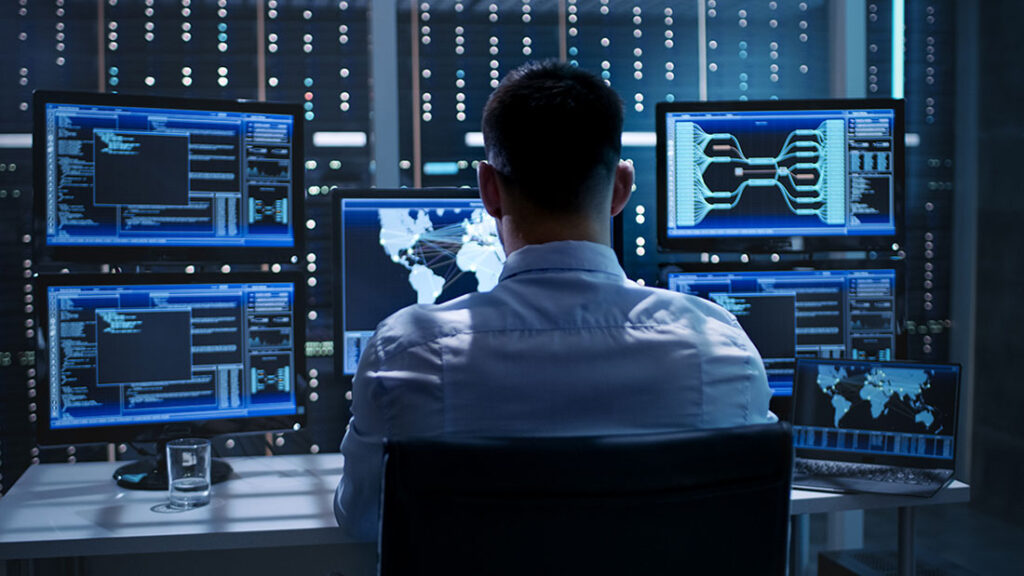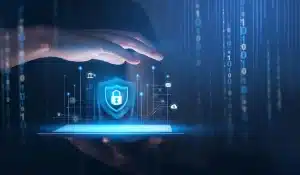While security guards may not need to be masters of data security and IT-level experts, they should have basic skills that allow them to help protect your firm’s data, and the data your clients use. Let’s take a look at the most important skills your guards should have.
Familiarity with the Technologies that Your Firm and Clients Use
In years past, security guards could get away with walkie-talkies and hardcopy paperwork, even if their clients were using much more advanced technology. That’s just not possible today. From logging into shifts online to coordinating with client security systems and video cameras, all security guards need to be familiar with a range of technology. They need to be comfortable learning new apps on their phones, working with surveillance systems, managing GPS tracking, and more. They should also be comfortable sending alerts or communications through a variety of mediums, including messaging services.
This is all basic stuff, a bare minimum of technology awareness, but there are a variety of introductory classes guards can take if they aren’t familiar. Here’s a list of free resources on a number of different tech topics, including more specific information that guards may want to study for specific clients.
Training for Incident Response
A cyberattack is an incident just like any other. Security guards should have training for the proper response if a client is hacked, attacked by malware, or encounters a similar problem. Typically, a robust response includes coordinating with decision makers on site, and discussing whether or not to lock down the building, guard specific access points, guide all customers out of the building, and so on.
Simply being aware of the possibility and risks of a cyberattack can be very useful. A confused security guard can be a liability, especially when others are panicking over potentially lost data or stolen information. Staying calm is, as always, one of the most helpful things a guard can do.
Understanding How Video Data Works
Surveillance data from video cameras is a common feature on security jobs, and guards should be very familiar with how to use it. That means understanding how the video is recorded, how to use night vision capabilities (if necessary), and how to view data on demand, including saved video from cams that may have alerted to movement, etc. A familiarity with how motion detection works and how to interpret security alerts can also be helpful, depending on the system.
These days many upgraded security systems also upload video to the cloud and send it through Wi-Fi networks. Guards should understand how this works, and be ready to access video in different ways depending on the systems in use. There’s not a steep learning curve for every different cloud storage service or video cam: Once you’ve learned the ins and outs of one system, the knowledge can easily be applied to others.
Understanding Basic Cybersecurity Precautions
Above, we mentioned that modern security systems send data by Wi-Fi. That’s not the only thing that Wi-Fi enables! Mobile communication, managing digital logs, reviewing in-app video footage, and much more may rely on Wi-Fi or at least an online connection. That introduces the risk of malware, viruses, and even phishing attempts via email or other services. Security guards should not use an unsecured connection that could allow your firm to be hacked or attacked, and the same is even truer of your clients.
Ensure all your guards are trained in avoiding the common mistakes that lead to data theft or malware. Avoid using unsecured Wi-Fi networks that don’t have passwords and encryption. Understand how to recognize phishing attempts. Don’t leave logins open on an unattended computer. Don’t write down passwords. If your company uses online communication frequently for many different purposes, it may be worth it to consider a VPN or similar company-wide encryption solution.
Working with Access Control Technology
Access control can mean many things. Some organizations may use security cards that are swiped or scanned. Others may depend on fingerprint scanners for identification. Some print off temporary guest passes, while others simply enable guest access through smartphone Bluetooth capabilities. Some let employees swipe their phones, while others may use an NFC chip in a security fob for contactless entry. And at the higher levels of security iris scans and other methods may be deployed. We are also starting to see an increased use of access control points that check databases for things like COVID-19 vaccinations.
Security guards should be comfortable using any access control technology necessary, and have a basic understanding of how it works and what problems may create errors for the system.
Final Notes
Cybersecurity training is like other security training: It can be learned over time with the right classes and practice. Including cybersecurity programs, along with mandatory guard training is a great way to ensure guards avoid making data-oriented mistakes and are ready to handle a variety of different systems they may encounter. If your security guards lack technological know-how, there’s never a better time than now to get started!






